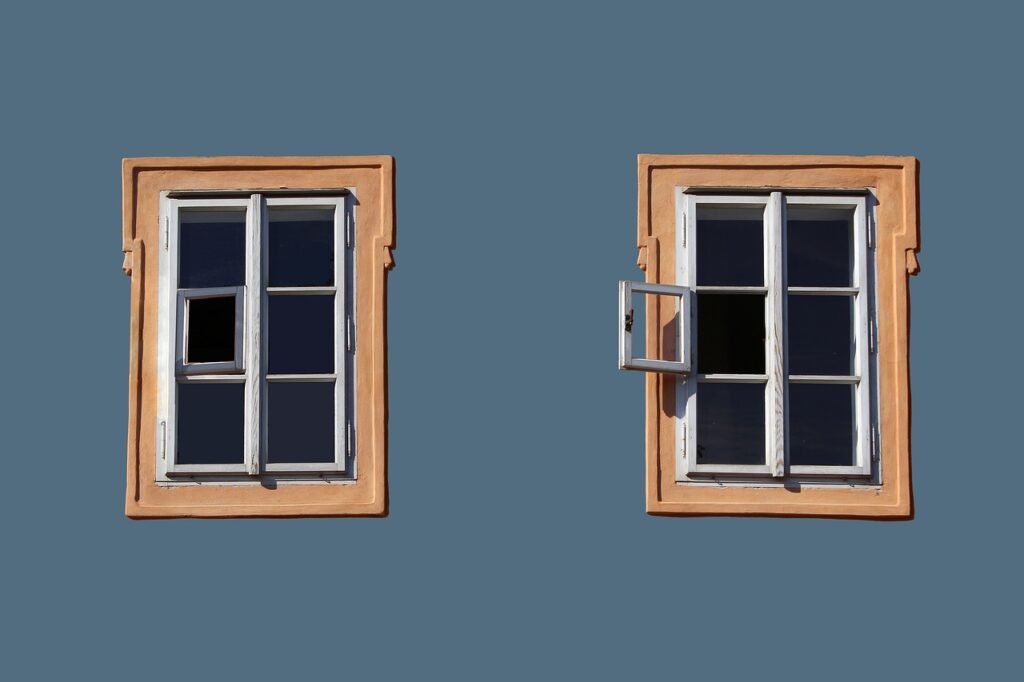One of the most important aspects of building a house is having windows that ensure fresh air entering your home to provide comfort to you and your family.
But when designing or upgrading a garage, it is one of the most debated decisions that homeowners face. Garages are no longer just places to park cars, they often serve as workshops, home gyms, hobby spaces, or even offices. With evolving usage, the features of this humble space have started to matter more. One such feature is natural light and the aesthetic contribution of windows.
This article explores the pros and cons of having windows in your garage, design considerations, security factors, types of windows available, and real-world use cases to help you decide if windows are the right choice for your garage.
The Purpose of a Garage: Then and Now
Traditionally, garages were purely functional spaces used to store vehicles and tools. In many homes, they were dimly lit, utilitarian, and often detached from the house. There was little need for windows since the primary goal was to protect vehicles from weather and theft.
Fast forward to today, garages have evolved. Attached garages are common, and they’re often used as multifunctional rooms. Homeowners now expect garages to be accessible, organized, and even beautiful. The way a garage looks and feels can affect a home’s value and curb appeal. As such, adding windows has become part of the conversation for both aesthetic and functional reasons.
Benefits of Adding Windows to Your Garage
Natural Light
One of the most compelling reasons to add windows to a garage is the introduction of natural light. Garages are typically dark, especially those that lack good artificial lighting. Natural sunlight makes a huge difference in usability. Whether you’re fixing something, cleaning up, or working on a DIY project, daylight helps improve visibility, reduce eye strain, and boost your mood.
Natural light also makes the garage feel more like an extension of your home rather than a dark, detached area. This matters even more when your garage doubles as a workspace, gym, or studio.
Improved Ventilation
While not all windows are operable, having at least one or two that can open allows for better airflow. This can be particularly helpful in reducing humidity, venting fumes from car exhaust or paint, and keeping the space cool in summer. Garages can trap heat, chemicals, and odors—windows help mitigate those problems by letting fresh air in and stale air out.
Enhanced Aesthetics
Let us not underestimate the power of curb appeal. Garage doors with windows look more stylish and modern. If your garage faces the street, the design can significantly affect how your home looks to passersby or potential buyers.
Windows can be customized to match your home’s architecture, providing a cohesive design and a more welcoming appearance. A basic, flat garage door without windows might make your home look closed-off or even outdated in contrast to more contemporary designs that incorporate glass elements.
More Versatile Usage
Garages with windows are more adaptable. As families grow or home needs change, garage spaces are often repurposed into home gyms, art studios, small offices, or play areas. In these scenarios, windows become essential—not only for lighting but also for creating a more pleasant environment. No one wants to spend hours in a dark, stuffy room, even if it is technically part of the house.
Downsides and Considerations
Security Concerns
One of the most common objections to adding windows in the garage is the risk of break-ins. Windows provide an opportunity for would-be thieves to look inside and see if there are tools, bikes, electronics, or even cars worth stealing. They also present a potential point of entry if they can be easily broken.
However, many of these concerns can be mitigated with smart design choices. Frosted or tinted glass can obscure the view inside. Reinforced or double-pane glass makes break-ins more difficult. Adding motion-activated lights, security cameras, and alarms can further discourage criminal activity.
Privacy
If your garage is attached to your house or near a neighbor’s property, privacy may be a concern. Windows that face common areas could let people see into your garage during the day. If you’re storing personal items or using the garage for private activities like workouts, this might be uncomfortable.
Curtains, blinds, window films, or high-placed windows can offer solutions without completely sacrificing light or air.
Insulation and Energy Efficiency
Windows, if not properly installed or insulated, can compromise your garage’s energy efficiency. They can allow cold air to seep in during winter and let heat in during summer, especially if the garage is not climate-controlled.
To address this, many homeowners opt for double-glazed or insulated windows designed to retain heat or block it depending on the season. A well-insulated garage door with thermal windows can help maintain a comfortable temperature and save on heating or cooling costs if your garage is connected to your home HVAC system.
Cost
Adding windows to your garage—especially if you’re retrofitting them into an existing door or wall—adds to the overall cost of a garage upgrade. The expense includes the window units, professional installation, possible electrical rewiring (if existing outlets or lights are in the way), and reinforcement for structural integrity.
While it’s often a worthwhile investment, it’s still a consideration if you’re working with a limited budget. Custom window designs or upgrades like privacy glass or security film can also add to the price tag.
Garage Door Windows vs. Wall Windows
If you’ve decided to add windows, your next decision is where they should go. Garage door windows and wall windows serve different purposes and offer distinct advantages.
Garage Door Windows are typically fixed, placed in the upper third of the door to allow light without compromising privacy. They enhance curb appeal and are often available as options when purchasing new garage doors. However, they usually can’t be opened for ventilation.
Wall Windows can be fixed or operable. They allow more control over air circulation and can be larger than door windows, offering more daylight. However, they require more significant structural work if they’re not already part of the design.
Some homeowners opt for both—small, tasteful windows in the garage door and a larger operable window on a side or back wall.
Style and Design Considerations
Your garage windows should blend seamlessly with your home’s existing architecture. Consistency in shape, frame color, and grid patterns helps maintain a cohesive aesthetic. For example, if your house features arched or colonial-style windows, avoid adding ultra-modern square garage windows that clash with the overall look.
Consider the orientation of the garage too. If it faces west, you might get intense afternoon sun, in which case tinted or UV-filtering glass can reduce heat and glare. East-facing garages benefit from soft morning light, while north-facing garages may require supplemental artificial lighting, even with windows.
Window frames also come in a variety of materials, from wood and aluminum to vinyl and steel. Choose one that matches your garage’s door or trim for a polished appearance.
Energy Efficiency and Climate Control
If your garage is attached to your home or you spend significant time there, insulation becomes a big priority. Poorly insulated windows can let in drafts, heat, and moisture. This not only makes the space uncomfortable but can also damage stored items like tools, paint, or equipment.
In cold climates, double- or triple-pane windows with low-E coatings help reduce heat loss. In hot climates, consider windows with heat-reflective coatings or built-in shades. Investing in quality windows can help reduce your energy bills and protect whatever you keep in your garage.
Garage doors with insulated window panels are now widely available and can be customized for both form and function. These windows let in light while maintaining thermal protection.
Should You Add Windows To an Existing Garage?
If your garage was built without windows, you might be wondering if it’s worth retrofitting them. The answer depends on your goals.
If you only use your garage for storage or parking, and security is your top priority, you might skip the windows. However, if you’re looking to enhance natural light, increase home value, or make the space more livable, adding windows is a smart move.
Consulting with a contractor or garage door specialist can help you determine the structural feasibility, cost, and design compatibility. You might be surprised how small changes—like two upper-pane windows—can completely transform the space.
Conclusion
Windows in the garage may seem like a small feature, but they can make a big impact on the way you experience and use the space. They brighten up your environment, improve ventilation, add charm to your home, and support a variety of alternative uses. If done right, adding windows to your garage can turn a dark storage area into one of the most functional and enjoyable spaces in your house.
Whether you’re building a new garage, replacing an old door, or considering a makeover, take time to consider how windows could elevate both your day-to-day experience and your home’s value. The answer might just be a bright “yes.”

